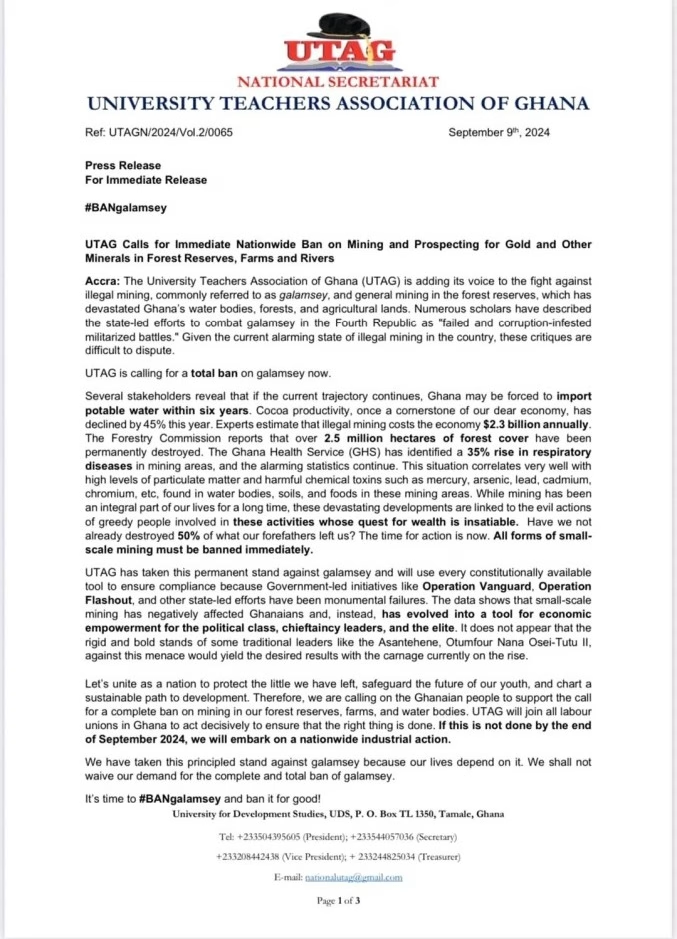The University Teachers Association of Ghana (UTAG) is calling for an immediate halt to illegal small-scale mining, also known as galamsey, in forest reserves.
This activity has caused extensive harm to Ghana’s water sources, forests, and agricultural lands. Scholars have criticized government measures to tackle galamsey, describing them as “failed and corruption-ridden militarized campaigns.”
In a press release issued by UTAG’s National President, Prof. Mamudu A. Akudugu, the association acknowledged the severe and worsening impact of illegal mining, which aligns with critiques of current government efforts.
“Stakeholders have warned that if the situation persists, Ghana could be forced to import potable water within six years. Additionally, cocoa productivity, a key economic driver, has dropped by 45% this year. Illegal mining is estimated to cost the economy $2.3 billion annually,” the release stated.
The Forestry Commission has reported the irreversible destruction of over 2.5 million hectares of forest cover. Furthermore, the Ghana Health Service (GHS) has noted a 35% increase in respiratory diseases in mining areas, with these numbers continuing to rise.
The statement emphasized the connection between the health crisis and high levels of pollutants such as mercury, arsenic, lead, cadmium, and chromium present in the water, soil, and food in these areas.
“Immediate action is essential. A complete ban on all forms of small-scale mining is necessary. UTAG has committed to a permanent opposition to galamsey and will utilize all constitutional means to enforce this ban, given the monumental failures of previous government-led initiatives like Operation Vanguard and Operation Flashout. The evidence indicates that small-scale mining has harmed Ghanaians and has become a means of economic gain for the political elite, chieftaincy leaders, and other privileged groups.”
The statement also called on the Ghanaian public to support the proposed ban on mining in forest reserves, farmlands, and water bodies. UTAG plans to join forces with all labor unions in Ghana to ensure this issue is addressed.
If a ban is not achieved by the end of September 2024, UTAG has vowed to initiate nationwide industrial action.
“Our demand for a complete ban on galamsey is non-negotiable as our very lives depend on it,” the statement concluded.
